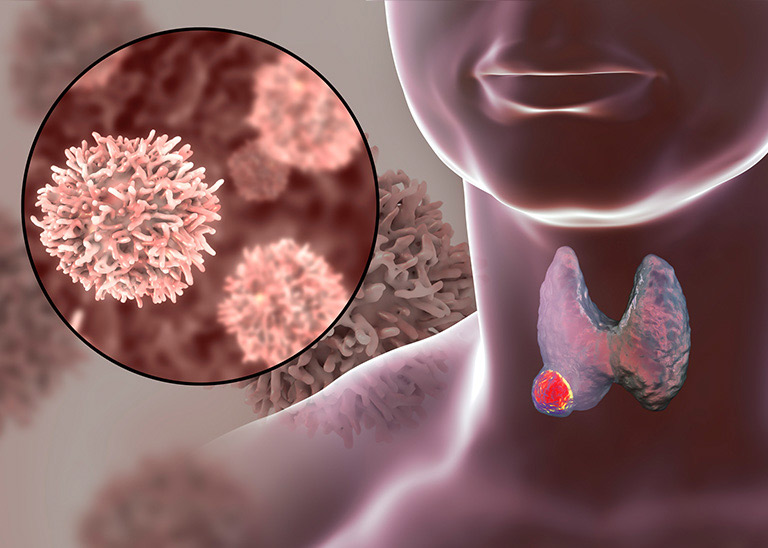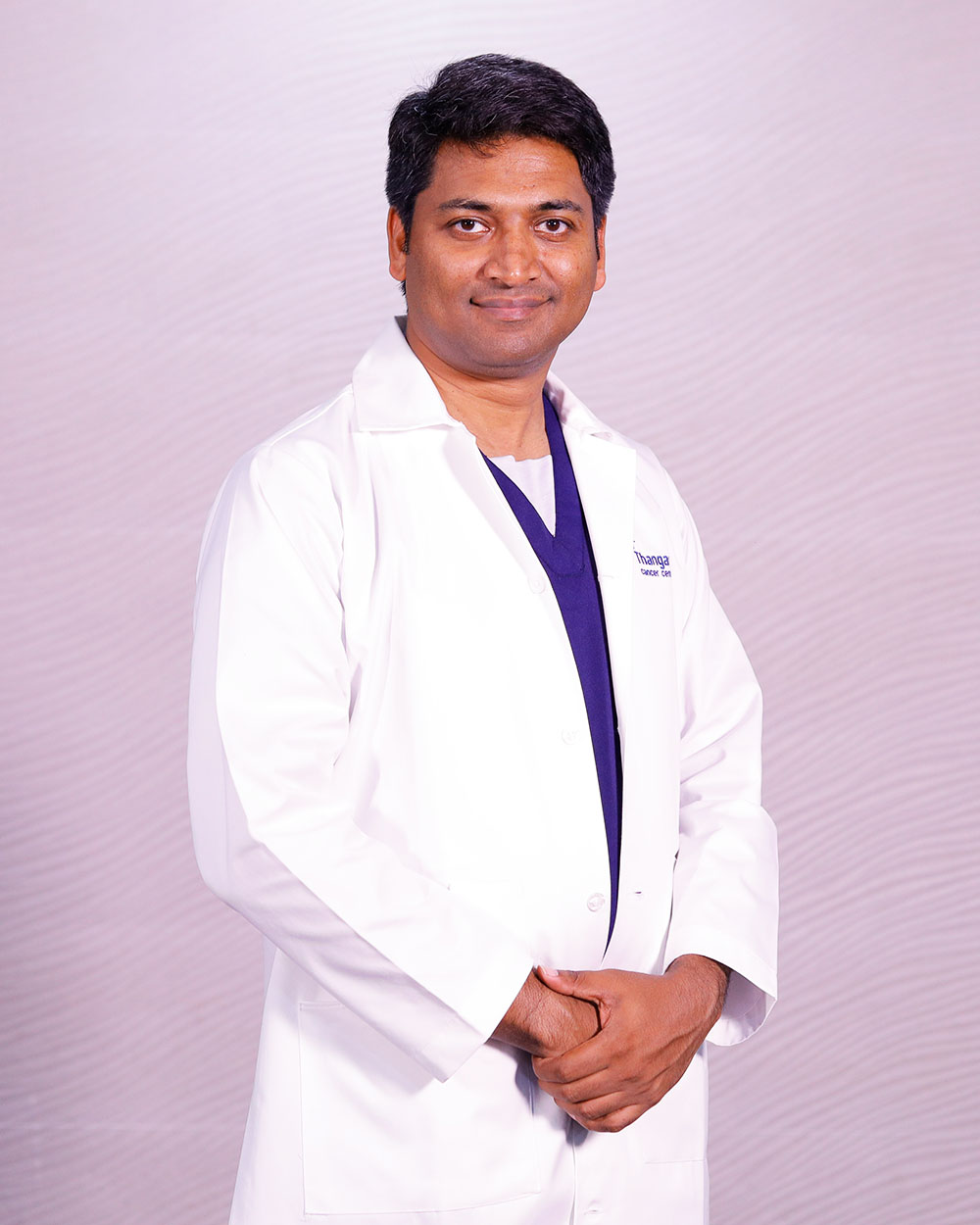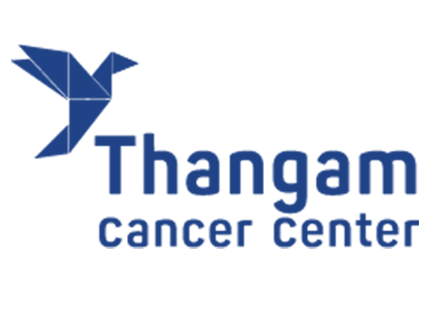Thyroid Cancer
Thyroid gland is a butterfly shaped gland found in front of the neck.Cancer in this gland can also occur.
Signs and symptoms :
Lump- Most commonly thyroid cancer presents as painless lump in front or side of neck Sometime there can be lump for long duration and it suddenly grows in size.
Discomfort- Uneasiness in throat, difficulty in swallowing etc can be symptoms of thyroid cancer.
Change or hoarseness of voice- In advance cases change of voice can be a symptoms
Breathlessness-In very advance cases difficulty in breathing in case of retrosternal goiters.
Incidental- Few percentages of patients are diagnosed accidentally while doing scans for other causes.
Types of thyroid cancer :
How it occurs?
Many of these cancers have changes in specific parts of the RET gene. The altered form of this gene, known as the PTC oncogene, is found in about 10% to 30% of papillary thyroid cancers. They may also have mutated BRAF gene.
Risk Factors
Age and gender- Thyroid cancer present in any age group. Like any other cancer chances of getting thyroid cancer increases after 50 years. Incidence of thyroid cancer is higher in women than men.
Hereditary condition- Certain genetic conditions are associated with certain types of thyroid cancer like-MEN 2 syndrome is associated with increased risk of medullary carcinoma thyroid, Familial adenosis polyposis , Cowden syndrome are associated with increased risk of papillary and follicular type of thyroid cancer.
Family History- History of having thyroid cancer in first degree relatives like parents, siblings, children increase the risk of thyroid cancer. People having family history of thyroid cancer have increased risk of getting thyroid cancer.
Radiation Exposure- Radiation exposure in child hood for diseases like lymphoma, neuroblastoma etc can cause thyroid cancer later.
Low iodine- Low level of iodine in diet is found be related to occurrence of follicular and papillary thyroid cancer.
Investigation After thorough clinical examination further investigations are palnned.
- Imaging (scan) -Ultrasound is the first imaging modality of choice. Ultrasound can characterize and predict the nature of lump. It is usually reported in TIRADS system. When there is suspicion of advanced cancer CT or MRI of neck and chest helps to further characterize the thyroid mass. Although not routinely done but if there is suspicion of spread to other organs PETCT scan is useful investigation.
- FNAC –Fine needle aspiration cytology is a technique in which small needle is introduced in the lump and cells are aspirated to examine under microcope. FNAC is very useful test to plan the treatment although sometime not conclusive to give correct results. FNAC done under ultrasound guidance gives better results.
- Blood tests – Thyroid function test is important part of work up. It gives idea about the
hypo or hyperfunctioning of thyroid. S Thyroglobulin is attest which can be done to follow up the thyroid cancer patients.
Treatment
Surgery – Surgery is the mainstay of the thyroid cancer treatment. Removal of full or half thyroid gland along with nearby neck lymph node is usually required in case of diagnosed cancer of thyroid.
Now Robotic surgery is available for Thyroid cancer surgery.
Radioiodine ablation therapy – After the surgery to get rid of residual thyroid cancer cells radioiodine ablation therapy is required in papillary thyroid cancer.
Radiotherapy –Radiotherapy is required in few cases after surgery when complete removal of cancer is not possible.
Chemo/targeted/immunotherapy – Thyroid cancers are not very chemosensitive cancers. In advanced and stage IV cancers when patient can not be offered surgery systemic therapy in the form of chemo/ targeted/immunotherapy

Follow up:
Usually patients are kept on thyroid suppression therapy life long.Post treatment regular follow up is necessary. There are different protocols for follow up but most commonly three monthly follow up for initial 2 years. Followed by 6 monthly check up for next two years subsequently yearly and two yearly follow up visits are recommended for next four years.

Doctors

Dr. Saravana Rajamanickam

Dr. Deepti Mishra



